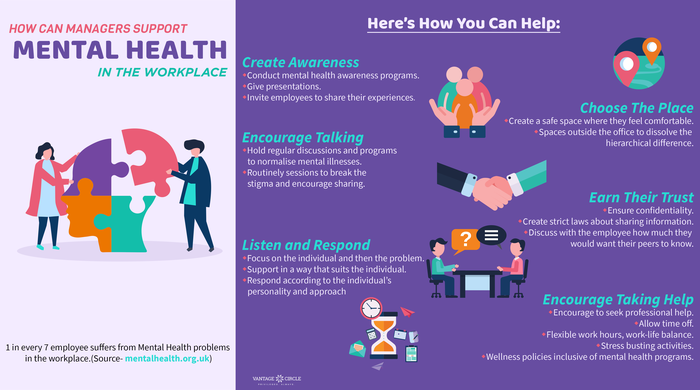Mental Health Policy: A Key To Increased Workplace Productivity

Table of Contents
The Economic Impact of Neglecting Mental Health in the Workplace
Ignoring employee mental wellbeing has significant financial consequences. A strong mental health policy is essential for mitigating these risks and creating a more productive and profitable work environment.
Reduced Productivity and Absenteeism
Untreated mental health issues like anxiety and depression directly impact workplace productivity. Employees struggling with these conditions often experience:
- Decreased output: Missed deadlines, increased errors, and reduced quality of work are common consequences.
- Increased sick days: Mental health challenges often lead to higher absenteeism rates, impacting project timelines and team efficiency.
- Presenteeism: Employees may be physically present but significantly less productive due to their mental health struggles, leading to hidden costs. This can manifest in reduced focus, difficulty concentrating, and decreased participation in team activities. The impact on team morale can also be considerable. These hidden costs can exceed those associated with absenteeism.
Increased Employee Turnover
A lack of support for mental health contributes significantly to higher employee turnover. This is a costly issue for businesses:
- Recruitment and training: Replacing employees involves substantial costs associated with recruitment, onboarding, and training new staff.
- Loss of institutional knowledge: Experienced employees leaving creates gaps in knowledge and expertise, impacting organizational efficiency.
- Disruption to team dynamics: The loss of a valued team member can disrupt team cohesion and productivity, affecting overall morale.
Legal and Ethical Considerations
Failing to address employee mental health carries legal and ethical risks:
- Discrimination lawsuits: Employers can face legal action if they fail to provide reasonable accommodations or create a supportive environment for employees with mental health conditions.
- Creating a supportive and inclusive work environment: Ethical considerations demand that businesses prioritize employee well-being and foster an inclusive environment where mental health is openly discussed and supported.
- Duty of care: Employers have a duty of care to safeguard the mental and physical health of their employees. Neglecting this responsibility can have significant legal and reputational repercussions.
Benefits of a Comprehensive Mental Health Policy
Investing in a robust mental health policy yields significant returns in terms of improved employee well-being and increased productivity.
Improved Employee Morale and Engagement
A supportive mental health policy fosters a positive work environment where employees feel valued and respected:
- Increased job satisfaction: Employees who feel supported are more likely to be satisfied with their jobs and more engaged in their work.
- Improved teamwork: A positive and supportive work environment encourages collaboration and teamwork, leading to improved productivity.
- Enhanced creativity and innovation: When employees feel safe and supported, they are more likely to be creative and innovative in their work.
Reduced Stress and Burnout
Effective mental health initiatives are crucial in mitigating workplace stress and burnout:
- Employee Assistance Programs (EAPs): EAPs provide confidential counseling and support services, helping employees manage stress and improve their mental wellbeing.
- Wellness programs: Initiatives like mindfulness training, yoga classes, or gym memberships can help reduce stress and promote a healthy lifestyle.
- Flexible work arrangements: Options like remote work, flexible hours, or compressed workweeks can reduce stress and improve work-life balance, leading to greater well-being and higher productivity.
Enhanced Company Reputation and Attracting Top Talent
A strong commitment to employee mental health significantly impacts a company's reputation and its ability to attract and retain talent:
- Employer branding: A positive reputation as an employer who values employee well-being attracts top talent.
- Improved recruitment efforts: Candidates are more likely to choose companies known for their supportive and inclusive cultures.
- Stronger employee loyalty: Employees who feel valued and supported are more likely to remain with the company for longer periods.
Key Components of an Effective Mental Health Policy
An effective mental health policy requires several key components to ensure its success.
Employee Assistance Programs (EAPs)
EAPs are crucial in providing confidential support services to employees:
- Therapy and counseling: EAPs often provide access to therapists and counselors who can provide support for mental health concerns.
- Stress management workshops: Workshops and training sessions can equip employees with strategies for managing stress and improving their mental wellbeing.
- Legal and financial consultations: EAPs may also provide access to legal and financial advisors to help employees deal with personal issues that may affect their mental health.
Mental Health Training for Managers and Employees
Training is vital to equip everyone with the skills to recognize and address mental health concerns:
- Mental health awareness training: This training aims to increase understanding of mental health conditions and reduce stigma.
- Bystander intervention training: This training equips employees to recognize and respond to colleagues who may be struggling with their mental health.
- Active listening skills: Managers and colleagues need training in active listening skills to effectively support employees experiencing mental health challenges.
Flexible Work Arrangements and Supportive Workplace Culture
Creating a supportive work environment is essential for reducing stress and promoting well-being:
- Remote work options: Allowing employees to work remotely can provide greater flexibility and reduce commuting stress.
- Flexible hours: Offering flexible work hours can allow employees to better manage their personal lives and reduce stress.
- Compressed workweeks: Options like a four-day workweek can improve work-life balance and reduce burnout.
- Open communication: A culture that encourages open communication about mental health is crucial for creating a supportive and inclusive workplace.
Conclusion
Investing in a comprehensive mental health policy is an investment in your employees and your company's future. We've seen how a strong mental health policy directly improves employee morale and engagement, reduces stress and burnout, and ultimately leads to increased productivity and reduced costs associated with absenteeism and turnover. Furthermore, a commitment to employee well-being enhances your company's reputation and helps attract and retain top talent. Take the first step today towards a more productive and supportive workplace by reviewing and enhancing your existing mental health policy or developing one if you don't already have one. Resources like the Mental Health Foundation can provide valuable guidance and support in this process. Remember, prioritizing your employees’ mental health is not just the right thing to do—it's smart business.

Featured Posts
-
 Fortnites Mode Shutdowns What Does It Mean For The Future
May 03, 2025
Fortnites Mode Shutdowns What Does It Mean For The Future
May 03, 2025 -
 Emmanuel Macron Et Les Victimes De L Armee Israelienne Une Rencontre Marquante
May 03, 2025
Emmanuel Macron Et Les Victimes De L Armee Israelienne Une Rencontre Marquante
May 03, 2025 -
 Oil Supply Disruptions A Critical Analysis Of The Airline Industrys Response
May 03, 2025
Oil Supply Disruptions A Critical Analysis Of The Airline Industrys Response
May 03, 2025 -
 Kendal Community Rallies Poppy Atkinson Fundraiser Surpasses Goal
May 03, 2025
Kendal Community Rallies Poppy Atkinson Fundraiser Surpasses Goal
May 03, 2025 -
 Alan Rodens Contributions To The Spectator An Analysis Of His Writings
May 03, 2025
Alan Rodens Contributions To The Spectator An Analysis Of His Writings
May 03, 2025
